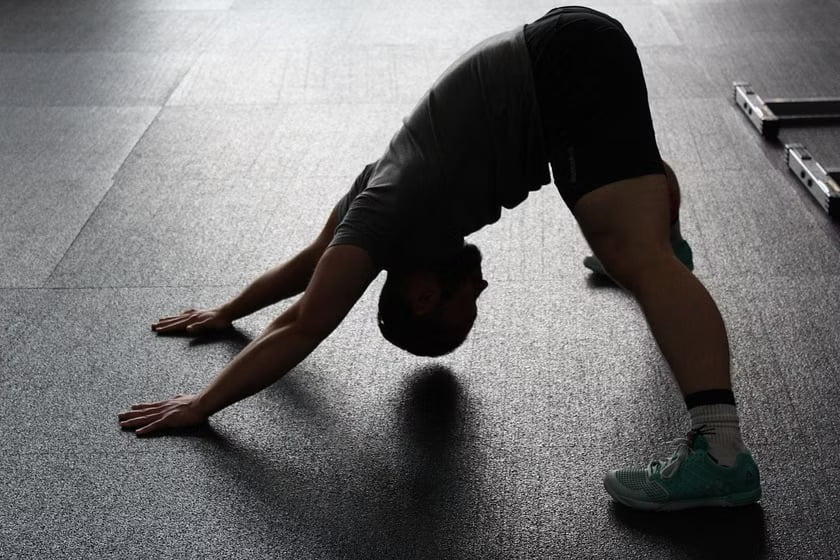In today’s fast-paced world, achieving and maintaining fitness can be challenging due to various factors such as busy schedules, lack of motivation, and insufficient knowledge about effective strategies. This article provides a comprehensive guide to enhancing your fitness journey by focusing on personalized fitness plans, the critical role of nutrition, the integration of mindfulness and mental health, and the latest technologies for tracking progress.
By addressing these key components, you can create a tailored approach that not only meets your individual goals but also fosters a sustainable and enjoyable fitness routine. Whether you’re looking to lose weight, build muscle, or improve overall well-being, this guide offers practical insights and actionable strategies to help you succeed.
In this article you will find:
Personalized Fitness Plans for Optimal Results
In the quest for improved fitness and well-being, a one-size-fits-all approach often falls short. Personalized fitness plans are becoming increasingly essential for individuals seeking to unlock their potential and achieve optimal results. By tailoring fitness regimens to meet specific goals, preferences, and lifestyles, individuals can experience more effective and sustainable outcomes.
Understanding the Importance of Personalization
Personalized fitness plans take into account various factors that influence an individual’s ability to succeed. These factors include:
- Current Fitness Level: Assessing where you currently stand is crucial for setting realistic goals.
- Health Conditions: Existing medical issues or injuries can significantly impact the type of exercises that are safe and effective.
- Goals and Aspirations: Whether aiming to lose weight, build muscle, or enhance endurance, your specific objectives should guide your fitness plan.
- Time Availability: Acknowledging how much time you can dedicate to workouts helps in creating a sustainable routine.
- Personal Preferences: Enjoying your workouts increases adherence and motivation, making it vital to include activities you love.
Creating Your Personalized Fitness Plan
Developing a personalized fitness plan involves several key steps:
- Assessment: Start with a comprehensive assessment that includes fitness testing, health screenings, and lifestyle evaluations. This can be done through fitness professionals or specialized apps.
- Goal Setting: Clearly define short-term and long-term goals. Use the SMART criteria—Specific, Measurable, Achievable, Relevant, and Time-bound—to ensure your goals are structured.
- Program Design: Incorporate various types of exercises such as strength training, cardiovascular workouts, flexibility training, and functional movements. This diversity not only prevents boredom but also addresses all aspects of fitness.
- Progress Monitoring: Regularly track your progress using fitness apps, journals, or wearable technology. Adjust your plan based on performance and feedback.
- Consultation with Professionals: Engaging with personal trainers or fitness coaches can provide expert guidance and accountability.
Adapting Your Plan Over Time
As you progress, your fitness needs and goals may change. It is essential to regularly revisit and adapt your personalized fitness plan. Consider the following:
- Incorporating New Challenges: As you become fitter, introduce new exercises or increase intensity to keep your body challenged.
- Reassessing Goals: Periodically evaluate your goals to ensure they remain relevant and motivating.
- Listening to Your Body: Pay attention to how your body responds to your training. Adjust your plan to avoid overtraining or injury.
The Role of Technology in Personalization
Advancements in technology have made it easier than ever to create and maintain personalized fitness plans. Wearable devices, fitness apps, and online coaching platforms offer valuable insights and data-driven approaches to fitness. For instance, platforms like MyFitnessPal enable users to track their nutrition and exercise, providing a comprehensive view of their progress.
In conclusion, personalized fitness plans are key to unlocking your potential and achieving optimal results. By understanding your unique needs and continuously adapting your approach, you can create a sustainable path to improved fitness and well-being. As you embark on this journey, remember that the right plan is not just about hard work; it’s about working smart and aligning your efforts with your personal goals.
The Role of Nutrition in Enhancing Your Fitness Journey
Nutrition plays a pivotal role in enhancing your fitness journey, serving as the foundation upon which your physical performance and overall well-being are built. While exercise is essential for achieving fitness goals, it is often the quality of your nutrition that determines the effectiveness of your workouts and your ability to recover. Understanding the nuances of nutrition can help you maximize your results and support a healthier lifestyle.
The Connection Between Nutrition and Fitness
Nutrition and fitness are intrinsically linked. The food you consume provides the energy necessary for physical activity and influences your body’s ability to recover and adapt to training. Here are some critical aspects of how nutrition impacts your fitness:
- Energy Levels: Carbohydrates are the primary source of energy for high-intensity workouts. Consuming adequate carbs ensures that your body has the fuel it needs to perform optimally.
- Muscle Repair and Growth: Protein intake is essential for repairing and building muscle tissue. After workouts, consuming protein helps in muscle recovery and growth.
- Hydration: Proper hydration is crucial for maintaining performance. Dehydration can lead to fatigue, decreased coordination, and increased risk of injury.
- Overall Health: A balanced diet rich in vitamins and minerals supports immune function and overall health, allowing you to train consistently without interruptions.
Key Nutritional Components for Fitness Success
To optimize your nutrition for fitness, consider focusing on the following key components:
- Macronutrients: Balance your intake of carbohydrates, proteins, and fats. Each macronutrient serves a unique purpose in your body:
- Carbohydrates: Fuel your workouts and replenish glycogen stores.
- Proteins: Aid in muscle repair and growth.
- Fats: Provide sustained energy and support hormone production.
- Micronutrients: Vitamins and minerals are essential for various bodily functions. Focus on a colorful diet filled with fruits and vegetables to ensure adequate micronutrient intake.
- Meal Timing: Consider when you eat in relation to your workouts. Consuming a balanced meal or snack before and after exercise can enhance performance and recovery.
Nutrition Strategies for Different Fitness Goals
Your nutritional needs may vary depending on your specific fitness goals. Here are tailored strategies for common objectives:
- Weight Loss: Focus on creating a caloric deficit while ensuring you consume enough protein to preserve muscle mass. Incorporate whole foods and limit processed items.
- Muscle Gain: Increase your caloric intake with a focus on protein-rich foods. Aim for a higher protein intake to support muscle synthesis.
- Endurance Training: Emphasize carbohydrates to fuel long-duration activities. Experiment with different sources of carbs to find what works best for you.
The Importance of Individualization
Just as personalized fitness plans are crucial for success, individualized nutrition plans can significantly impact your progress. Factors such as age, gender, metabolic rate, and activity level should all be considered when tailoring your nutrition. Consulting with a registered dietitian or nutritionist can provide personalized insights and recommendations that align with your fitness goals.
For further reading on the importance of nutrition in fitness, you can explore resources from the Academy of Nutrition and Dietetics, which offers a wealth of information on nutrition strategies for athletes and fitness enthusiasts.
Incorporating the right nutritional strategies into your fitness journey not only enhances performance but also fosters long-term health and wellness. By prioritizing nutrition, you set the stage for achieving your fitness goals and enjoying a more vibrant life.
Incorporating Mindfulness and Mental Health into Fitness
As the fitness landscape continues to evolve, an increasing emphasis is being placed on the integration of mindfulness and mental health into fitness routines. This holistic approach recognizes that mental well-being is just as crucial as physical health for achieving optimal performance and overall quality of life. By incorporating mindfulness practices into your fitness journey, you can enhance your workouts and cultivate a deeper connection between your mind and body.
The Mind-Body Connection
The concept of the mind-body connection highlights the interplay between mental and physical health. Research shows that mental well-being can significantly impact physical performance and recovery. Here are some ways in which mindfulness contributes to this connection:
- Enhanced Focus: Mindfulness practices such as meditation and deep breathing can improve concentration and mental clarity, allowing you to focus better during workouts.
- Stress Reduction: Engaging in mindfulness techniques can lower stress levels, which in turn can lead to improved physical performance and recovery.
- Increased Body Awareness: Mindfulness encourages greater awareness of your body, helping you to listen to its signals and avoid injury.
Mindfulness Techniques for Fitness
Incorporating mindfulness into your fitness routine doesn’t require a complete overhaul of your current practices. Here are several techniques you can easily integrate:
- Mindful Breathing: Before starting your workout, take a few moments to focus on your breath. Inhale deeply and exhale slowly to center your mind and prepare for physical activity.
- Body Scan Meditation: Perform a body scan to increase awareness of tension or discomfort in your muscles. This can be done before or after workouts to promote relaxation and recovery.
- Yoga and Stretching: Incorporate yoga or stretching sessions into your routine. These practices promote mindfulness through movement and can enhance flexibility and balance.
- Gratitude Journaling: After your workouts, take a moment to reflect on what you are grateful for. This practice can shift your mindset towards positivity and motivation.
The Impact of Mental Health on Fitness
Mental health plays a significant role in your ability to engage in and enjoy physical activity. Here’s how prioritizing mental health can enhance your fitness journey:
- Motivation: A positive mental state can boost your motivation to exercise regularly, while mental health challenges can lead to decreased physical activity.
- Consistency: Addressing mental health issues can improve your ability to stick to a fitness routine, as emotional well-being often influences your commitment to exercise.
- Social Connections: Engaging in group fitness activities can foster social connections, which are beneficial for mental health. Building a support network can enhance motivation and accountability.
Resources for Mindfulness and Mental Health
To further explore the integration of mindfulness and mental health into your fitness journey, consider utilizing various resources:
- Apps: Use mindfulness apps such as Headspace or Calm for guided meditations and relaxation techniques.
- Books: Explore literature on mindfulness and mental health, such as “The Mindful Athlete” by George Mumford, which connects mindfulness practices to athletic performance.
- Professional Support: If you’re struggling with mental health issues, consider consulting a mental health professional or therapist who specializes in sports psychology.
By incorporating mindfulness and prioritizing mental health in your fitness journey, you can create a more balanced and fulfilling approach to exercise. This holistic perspective not only enhances physical performance but also fosters emotional resilience and overall well-being.
Emerging Technologies to Track and Boost Your Progress
As the fitness industry continues to evolve, emerging technologies are playing a crucial role in helping individuals track and enhance their fitness progress. These innovations not only provide valuable insights into performance but also motivate users to stay committed to their health and wellness goals. From wearable devices to mobile applications, technology is transforming the way we approach fitness.
The Rise of Wearable Technology
Wearable fitness technology has gained immense popularity in recent years, providing users with real-time data about their physical activities. Here are some key features and benefits of wearable devices:
- Activity Tracking: Wearables such as fitness trackers and smartwatches monitor daily activities, including steps taken, calories burned, and distance traveled, helping users stay accountable.
- Heart Rate Monitoring: Continuous heart rate tracking allows users to gauge their intensity levels during workouts, ensuring they are training within their optimal heart rate zones.
- Sleep Analysis: Many wearables offer sleep tracking features, providing insights into sleep patterns and quality, which are essential for recovery and overall health.
- Goal Setting: Users can set personalized fitness goals and receive reminders and notifications to stay on track, fostering a sense of achievement.
Mobile Applications for Fitness Tracking
In addition to wearables, mobile applications have revolutionized fitness tracking by offering a wide range of features that cater to individual needs. Here are some popular categories of fitness apps:
- Workout Loggers: Apps like JEFIT allow users to log workouts, track progress over time, and access a library of exercises.
- Nutritional Trackers: Applications such as MyFitnessPal help users monitor their dietary intake, ensuring they meet their nutritional goals.
- Virtual Coaching: Platforms like Tonal offer personalized workout plans and virtual coaching, making fitness accessible from home.
- Community Support: Many apps provide social features, allowing users to connect with friends or join fitness challenges, which can enhance motivation and accountability.
Innovations in Fitness Equipment
Emerging technologies are also influencing the design and functionality of fitness equipment. Smart gym equipment is becoming increasingly popular, offering features such as:
- Interactive Workouts: Machines like the Tonal and Peloton provide on-demand classes, live coaching, and performance tracking, creating an engaging workout experience.
- Adaptive Resistance: Smart weights adjust resistance levels based on user performance, ensuring workouts are challenging yet achievable.
- Data Integration: Many modern fitness machines sync with mobile apps and wearables, allowing for seamless tracking of workouts and progress.
The Future of Fitness Technology
As technology continues to advance, the future of fitness will likely see even more innovative solutions. Some potential developments include:
- Artificial Intelligence: AI-driven personal trainers could provide real-time feedback and adjustments to workouts based on user performance and goals.
- Virtual Reality: VR fitness experiences may revolutionize how people engage with workouts, making exercise more immersive and enjoyable.
- Health Monitoring: Advanced wearables may soon offer comprehensive health monitoring, including blood glucose levels and stress indicators, providing users with a holistic view of their health.
Incorporating these emerging technologies into your fitness routine can significantly enhance your ability to track progress and stay motivated. As you explore these tools, remember that the key to success lies in finding the right combination that aligns with your personal fitness goals and lifestyle. Incorporating personalized fitness plans, nutrition, mindfulness, and emerging technologies can significantly enhance your fitness journey. Tailoring your fitness regimen to your unique goals, preferences, and current health status ensures a more effective and sustainable approach. Prioritizing nutrition by balancing macronutrients and micronutrients, along with timing your meals around workouts, supports optimal performance and recovery.
Additionally, integrating mindfulness practices can improve focus, reduce stress, and foster a deeper connection between mind and body. Leveraging wearable technology and mobile applications can help track progress, set goals, and provide real-time feedback, making it easier to stay motivated and accountable. By embracing these strategies, you can create a holistic fitness routine that promotes both physical and mental well-being.




